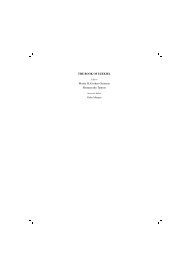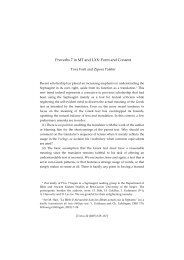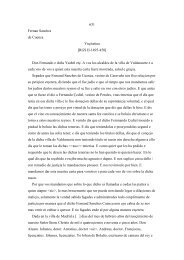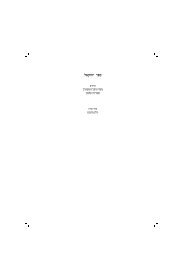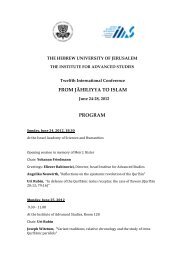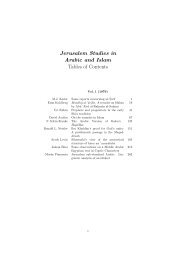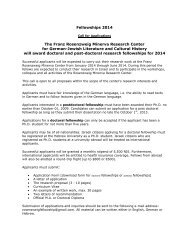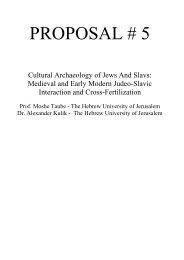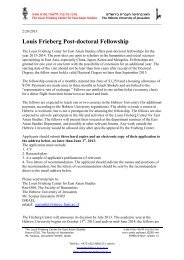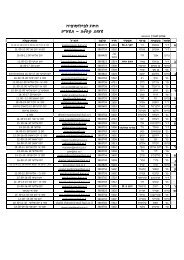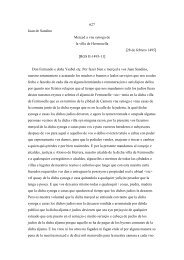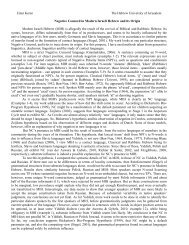Baber Johansen
Baber Johansen
Baber Johansen
You also want an ePaper? Increase the reach of your titles
YUMPU automatically turns print PDFs into web optimized ePapers that Google loves.
42<br />
underline the contingency of their own doctrines and decisions, the more<br />
the elevated rank of the indisputable knowledge (Ýilm yaqīn) conveyed by<br />
the revealed texts becomes apparent. In the MustaÒfā, Ghazālī discusses a<br />
field of non-contingent and unchanging truths that is constituted by the<br />
rational cognition of theology as well as the norms of those parts of legal<br />
methodology and the applied law that are directly based on God’s words.<br />
He opposes this field to the changing, contingent and unpredictable<br />
character of the jurists’ norms on transactional relations between men. To<br />
these, he denies the character of indicants able to prove the veracity of<br />
norms. I quote his evaluation of the relation between these two fields:<br />
What lies beyond [the first field] are the fiqh norms based on<br />
assumptions (al-fiqhiyyat al-Ûanniyya) for no categorical proof<br />
(dalīl qatÝī) is available [for them]. The fiqh norms constitute a<br />
[licit] object of ijtihād. In these norms, according to our judgment,<br />
there is no specific correct solution and no sin is committed by the<br />
mujtahid, as long as he perfects his effort of norm production<br />
through individual legal reasoning and as long as he is qualified<br />
[for ijtihād]. 99<br />
In the twentieth century, norms of Muslim fiqh have been introduced into<br />
the codified law of an important number of Muslim countries. Since the<br />
1970s, the principles of Islamic normativity have been given<br />
constitutional ranking in a number of Arab and Muslim countries. It is<br />
interesting to see that the Supreme Constitutional Court of Egypt in its<br />
continuous jurisprudence since the 1990s has recourse to the classical<br />
contingency model of Muslim fiqh. It distinguishes contingent—and<br />
therefore changeable—norms of the classical Muslim heritage from<br />
unchangeable principles and norms of the revelation. It thus opens the<br />
way to legal change and justifies it, at the same time, through anchoring<br />
this change in the eternal principles of the Muslim revelation. 100 Fiqh, in<br />
this jurisprudence, is no longer accepted as the indisputable<br />
representation of the Islamic religion. The question is whether the<br />
integration of fiqh and the eternal principles of the revelation into state<br />
law and constitutional jurisprudence will not, in the long run, thin out the



